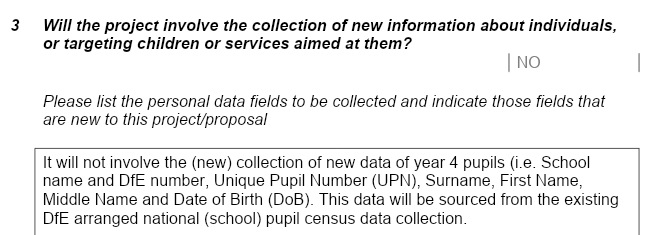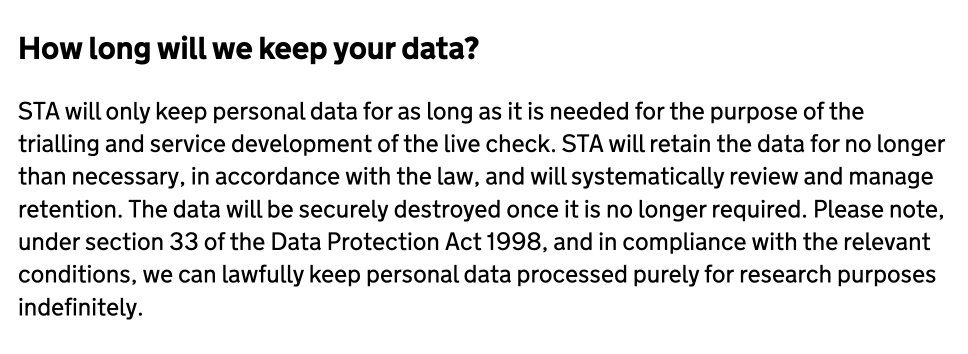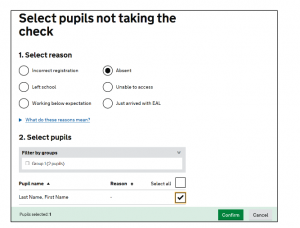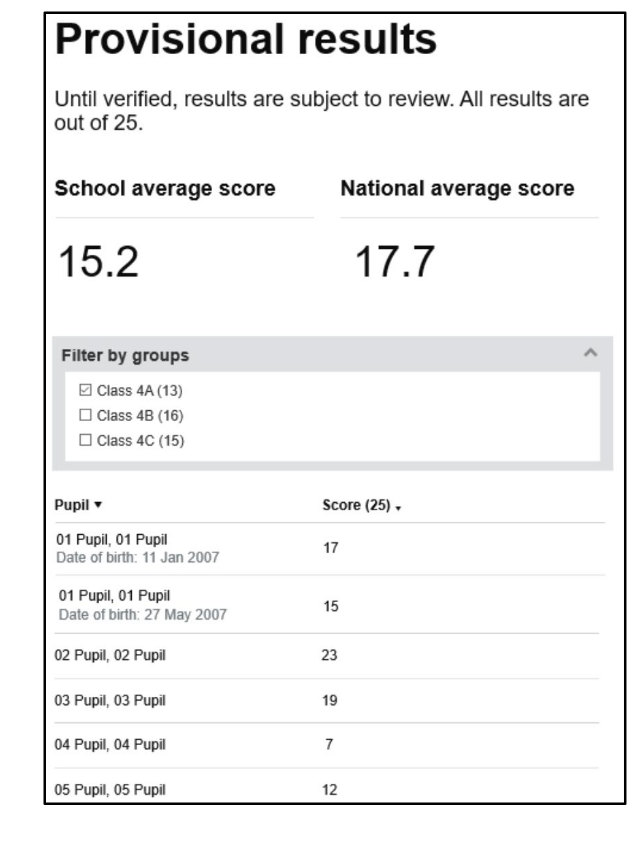The Multiplication Tables Check (MTC)
Campaign legislation / May 10, 2019
What’s the story?
On April 1st, the Standards and Testing Agency (STA) published information about the June 2019 national pilot of the Multiplication Tables Check (MTC).
“It is a short timed, on screen, check of pupils’ ability to fluently recall their multiplication tables up to and including their 12×12 tables. Check form will comprise a maximum 25 questions with a 6 second time limit to recall and input answer with a 3 second gap until next question.“
Since our post about the gaps in the Technical Guidance and Admin Guide on the data protection obligations of schools, we have received its Data Protection Impact Assessment (DPIA) and a document labelled as a Privacy Notice. That should tell families about what data will be collected, why and of their rights around this new data creation and national collection for life.
What’s missing?
The information to provide to people must be concise, transparent, intelligible, easily accessible, and it must use clear and plain language to be suitable to be read by a primary-age child. We believe that this privacy notice does not meet these criteria, and it is misleading due to being incomplete.
Miraculously it appears to be a test that won’t capture any test scores according to the Data Protection Impact Assessment (DPIA). The only personal data the DPIA states will be captured are already collected it claims — defeating any logic of the purpose of a new data collection and is clearly a mistake. We leave it for the reader to decide whether it is deliberately mendacious, malicious, or simply misinformed. Because it will collect new personal data.
The purpose of the test is to create and collect new data together with personal details to be analysed by “psychometricians”. The scores are personal data, associated with the child.

The guidance confirmed it will capture scores, at pupil level. And more.
Scores are not all that is missing in the data protection risk assessment:
- new data will be created when details will be linked to children marked as “not taking the test”, and the reasons for that. Note that these include, “Just arrived EAL”.
- indefinite data retention — it is misleading we believe to suggest a six month retention period, but also says that 2020 results data will be shared by adding to the Analyse Schools Performance (ASP) database and omits that such storage is indefinite.
- The Notice leaves out that from the ASP, access to individual pupil data may be to an indefinite numbers of persons, commercial companies and third-parties. This is a shocking omission.
- Anything about children’s and parents right to object is missing too.

Why does it matter?
The risk assessment has hidden all the risks! And it does not match up with details set out in the MTC guidance and administrative guide.
It may therefore be unsurprising that the ICO has accepted that despite the new data collection, processing on a large scale; and processing of data concerning vulnerable data subjects for life — that they, “do not require further consultation with the department on the data implications arising from the introduction of the MTC.”
The DPIA does not show that the processing is necessary and proportionate to achieve its aims which are not clear; nor does it balance this against the individual’s interests, rights and freedoms.
This is a new national test to be analysed by and distributed through the ASP database to no one knows exactly who in future. For every child in England.

What’s next?
If so little is supposedly new according to the risk assessment, it is therefore even more surprising that new law is necessary. But it is. And it’s come into effect in under a month, without debate. The Statutory Instrument to create a new lawful basis for the processing, has already been made. Some came into effect on May 1st and the rest will on September 1st, 2019.
Given the Home Office has access to national pupil data, and is misusing education data for immigration enforcement purposes, adding a “Just arrived” indicator poses a potential very real threat to those families. We’re horrified. We have asked the Department for clarifications.
*First published on May 10, 2019. Edited on May 31, 2019, for clarity and to include the new DfE video available for access arrangements.

